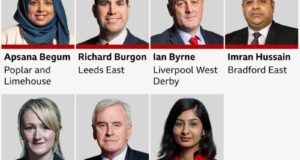The UK’s annual inflation rate fell to zero in February as the slide in the cost of oil continued to act as a brake on prices.Inflation dropped from 0.3 per cent in January to a record low, against economists’ expectations of a fall to 0.1 per cent. The news hit sterling, which was down 0.4 per cent against the euro. George Osborne, the chancellor, seized on the news to say falling inflation was a boon for British consumers. “Inflation at zero is a first for the British economy. Low inflation due to falling oil prices is good news for family budgets,” he wrote on Twitter. But the figures will weigh on the minds of Bank of England policy makers: the Monetary Policy Committee, which sets interest rates, is considering raising them from their record low of 0.5 per cent. So far the BoE has taken the view that falls in inflation are temporary and there is no need to cut rates to bring it back to its target of 2 per cent. Mark Carney, Bank of England governor, has said it would be “extremely foolish” to cut rates or expand quantitative easing in response to falling oil prices unless lower inflation was hurting wage growth, consumer spending and business investment. However, Andy Haldane, the BoE’s chief economist, last week appeared to open the door to more monetary stimulus, saying: “The chances of a rate rise or cut are broadly evenly balanced.” The slide in inflation was largely driven by a drop in the cost of transport, food and non-alcoholic beverages. However, core inflation, which strips out the effects of these more volatile items, also slowed — to 1.2 per cent against 1.4 per cent in January. Producer prices continued to fall in the year to February, down by 1.8 per cent. This means that deflationary pressures are continuing to build. Economists said while it was now probable inflation would show as negative in March, they thought it unlikely the UK would suffer prolonged deflation.“It looks odds on that inflation will turn negative in March, when the cut in gas prices by British Gas . . . will show up in the inflation figures for the first time. And inflation is then likely to remain around zero or slightly negative for the rest of the year,” said Vicky Redwood, chief UK economist at Capital Economics.“But we doubt that this will turn into more serious and ingrained deflation,” she added.In fact, analysts remain convinced that falling inflation will boost consumer spending. “Rather than being a concern, the drop in inflation is a boon to the economy, providing households with greater spending power at a time when pay growth remains frustratingly weak,” said Chris Williamson, chief economist at Markit.“Real regular wages are currently rising at their fastest rate for seven years, increasing at an annual rate of 1.6 per cent, but this is thanks to lower prices rather than rising earnings.”Inflation is expected to pick up in the second half of this year as the effects of the one-off slide in petrol prices disappear from the yearly measure. This will increase inflation by around half a percentage point, according to Alan Clarke, an economist at Scotiabank. The outlook will then depend on how much greater consumer spending will lead producers to raise prices. Conversely, the appreciation of sterling, which has risen by 2.2 per cent against a basket of currencies since the start of the year, will provide a dampening effect on inflation by making imports cheaper.“[The second half of this year] is likely to see a reacceleration in inflation, but the pace of rebound is facing conflicting influences, so most likely to be gradual,” Mr Clarke said.
 Weekly Bangla Mirror | Bangla Mirror, Bangladeshi news in UK, bangla mirror news
Weekly Bangla Mirror | Bangla Mirror, Bangladeshi news in UK, bangla mirror news








